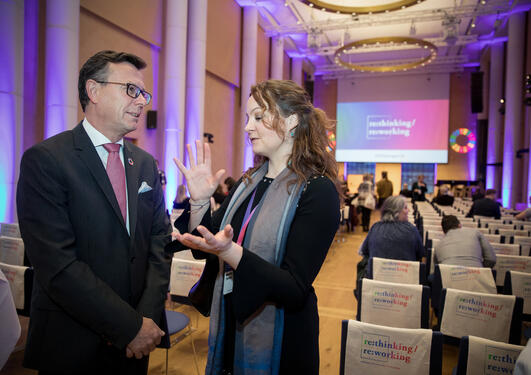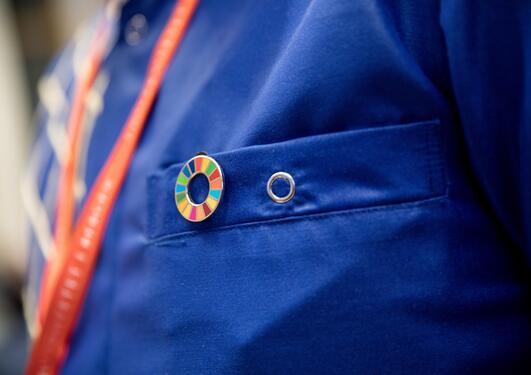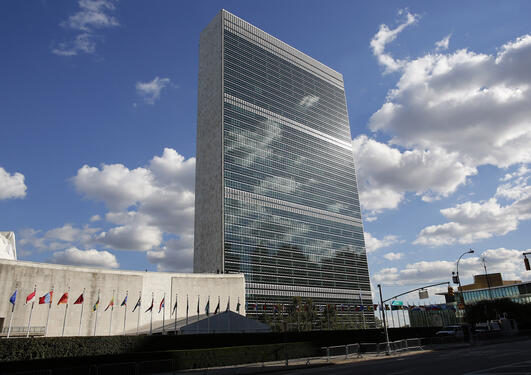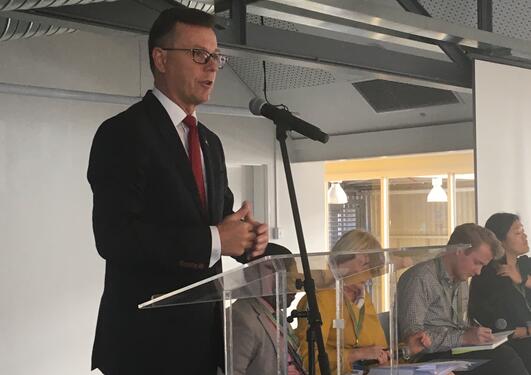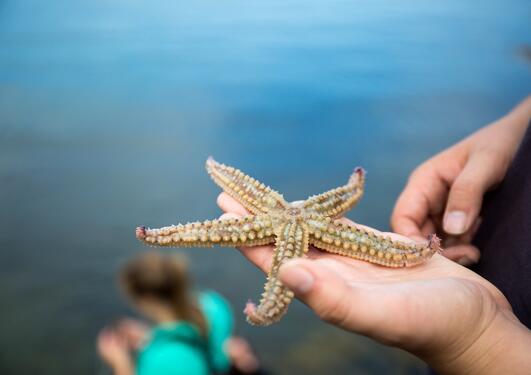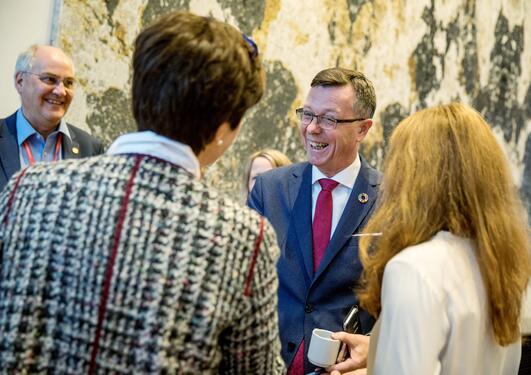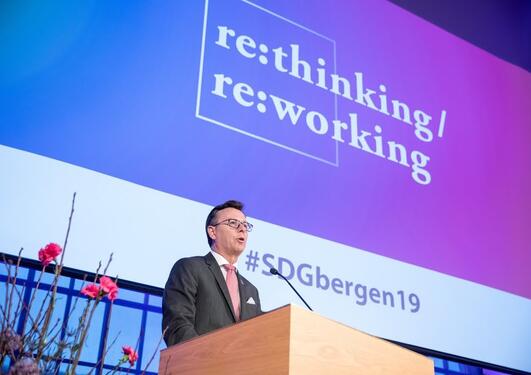Reworking towards science advice
The second day of the 2019 SDG Conference Bergen focussed on how the academic community can bring its knowledge to decision-makers locally and globally.

Hovedinnhold
What knowledge do we need? And how is this knowledge connected to the Sustainable Development Goals (SDGs)? These were the questions Vice-Rector for Global Affairs, Professor Annelin Eriksen, at the University of Bergen (UiB) asked when she opened discussion in the third panel at the 2019 SDG Conference Bergen.
The power of science diplomacy
The conference theme on day one was a re:thinking of the 2030 Agenda. On day two the focus was on re:working, with a particular focus on the role of scientific advice.
“Universities must carve out new research in the era of the SDGs. We must develop knowledge between the goals and critical knowledge on the goals,” said Eriksen, “research must ask the right type of questions, so as not to lose sight of the transformative shift in the 2030 Agenda.”
Already on day one of the conference, when UNESCO's Assistant Director-General for Education, Stefania Giannini, was the conference opening keynote, the subject of science diplomacy was discussed.
“Science diplomacy has more power than politics. It's about knowledge. This is part of the job universities do and UNESCO is trying to build,” she said, “to strengthen the role of science diplomacy, we need more partnerships for international research structure.”
Be conscious about science-policy divide
On day two, this was elaborated on in the first re:working session – Knowledge for Partnerships. Some core advice on how academia could best proceed to succeed with its science advice, came directly from the UN itself.
“In science advice for policy, encouraging a learning process is just as important as communicating state-of-the-art in research,” said Shantanu Mukherjee from the United Nations Department of Economic and Social Affairs (UN DESA), where he leads the Policy and Analysis Branch of UN DESA's Division for Sustainable Development.
He welcomed the critical debate in academia's engagement with the SDGs, but also urged a note of caution
“We have ten years to take corrective action and have to be pragmatic in how we use the instruments that are available for us,” he said before emphasising the need for honesty in how to use imperfect instruments to offset their contradictions.
“As scientists, your job is not just to communicate your discipline, but also to be conscious on how other actors are supporting or hindering you. How you communicate your knowledge to a policymaker can sometimes undermine your point,” the UN DESA head said about the challenges at the so-called science-policy interface and to be conscious of this divide. (See FACTS.)
